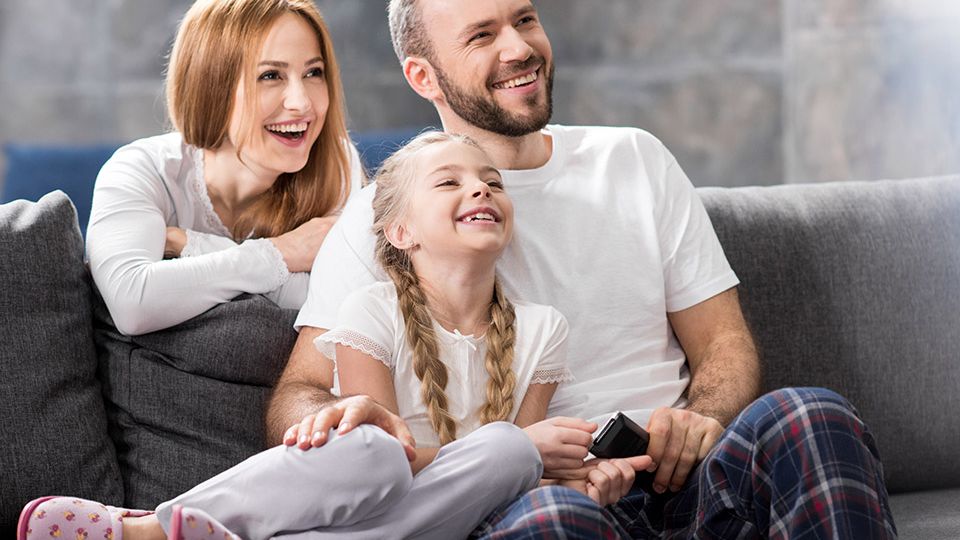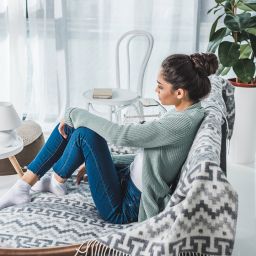
Coronavirus: 5 Hidden Positives the Media Doesn’t Talk About
There’s no denying that times are tough. The COVID-19 outbreak has affected each of us emotionally, financially, and physically, with drowning media coverage continuously reporting negative news. It’s easy to lose sight of the positive parts of life.
In fact, as humans we are programmed to exaggerate external threats and danger. Although this kept us safe during our hunter-gatherer days, it’s not a particularly healthy behavior during a pandemic–it just leads to the global panic and anxiety that we’ve seen recently.
This is an opportunity for us to enhance our lives in a much more meaningful way, bringing good lessons with us as we emerge from this dark phase into a different and possibly better world. When there is a crisis, there is always space for a new light to shine through.
Let’s pause and take a moment to examine some of the good things that can arise during hard times. Below are just a few of the hidden positives about the coronavirus crisis that the media isn’t talking about.
1. Learning that some of the best things in life are free
During a crisis, our attention often gets redirected toward things we typically take for granted. When people have asthma, they may feel more grateful for breathing air into their lungs. Struggling with diabetes can provide an opportunity to shift our focus to appreciate eating healthy food that allows our bodies to feel balanced and energized. Someone with a broken arm may notice better movement in their shoulders.
Likewise, instead of dwelling on what we’ve lost during the coronavirus outbreak, many of us are finding new sources of fulfillment. It’s not that we don’t miss our “old” lives–of course we all do. But we’re also discovering simple pleasures that enrich daily life and don’t cost much.
My friends who loved eating out, going on exotic vacations, and visiting the gym daily before the coronavirus outbreak are now taking exploratory walks around their neighborhoods, learning to draw, and studying another language.
People all over the world are joining home workout groups online, where they encourage each other and share their progress. Virtual book clubs are on the rise and Joe Wicks, the now famous P.E. teacher, is leading free online exercise classes for kids.
Once lockdown is over, we may find that spending money is no longer our go-to when we’re looking for a fun way to fill the hours. Simply spending time together, pursuing a new hobby, or enjoying the great outdoors may be enough.
2. Expanding resilience and inner strength
Though many of us are experiencing unprecedented levels of anxiety and uncertainty, we’re also coping admirably under very difficult circumstances, drawing on strength and resilience we didn’t know we had.
Families are making do with less, finding creative ways to use what’s in their pantries and around the house to stay fed and entertained. Spouses and partners are finding ways to work through relationship challenges in close quarters, even strengthening their bond during these tough times.
Recently unemployed professionals are fighting through the anxiety and uncertainty every day, continuing to have hope for the future. Many of us are also taking time for ourselves–something that often gets relegated to the bottom of the to-do list in “normal” times.
Although we didn’t ask for this situation, we can get through it stronger than ever. Let’s focus on building up our reserves by practicing great self care, rather than allowing them to be depleted by a constantly evolving situation that brings new stresses on a daily basis.
We can take advantage of having a little more downtime than usual by learning to practice mindfulness and meditation, calming and centering techniques that can be built into our daily lives to help us face uncertainty with greater resilience.
It’s also important to practice greater self-compassion as we navigate this difficult time, and allow ourselves to feel a range of often conflicting emotions without judgment.

3. Really connecting with others
Instead of destroying or diminishing the bonds between separated loved ones, the COVID-19 outbreak has strengthened friendships and family ties, with many of us making more effort than ever before to stay in touch with those we usually depend on… and not just via social media and email, but by picking up the phone to hear their voice or see their face.
We’re appreciating our loved ones better than ever, remembering how much we need their practical and emotional support. Many of us are also making new connections during the crisis, through helping elderly and vulnerable neighbors, using social media to network for employment opportunities, and forming online support groups to share knowledge around issues like homeschooling.
Examples of kindness and generosity are evident on all social media platforms, with strangers helping each other track down job opportunities and supporting each other with motivational words.
These new friendships will outlast the current crisis and make us more attentive to the needs of those who live around us. We may also find it easier to ask for help when we need it in the future.
4. Taking a break from busy
Waking up without an action-packed to do list each day can be an unusual and challenging experience. We’re so accustomed to filling every waking moment with frantic activity that an abundance of downtime can feel foreign. Given a little time to adjust, it can also feel fantastic!
We are finally slowing down. Over-productivity, over-consumption, over-working, addiction, living in the past or future, trying to complete your entire to-do list–these are all imbalances COVID-19 can help us overcome.
I’ve heard from several parents who are enjoying a break from their fast-paced daily routine of working, helping with homework, chauffeuring kids to activities, getting ready for bed, and trying to fit in house chores. They’re using their newfound freedom and time to play board games with the kids, enjoy baking together, and making up games in the backyard.
None of us would have chosen this as our preferred way to rediscover free time, but a lot of us are grateful to take a break from busyness nonetheless. Without the need to live our lives at breakneck speed right now, we are embracing a new sense of acceptance. We’re learning how to mindfully inhabit the moment and find greater balance and calm.
5. Remembering what is most important
Raise your hand if you’re giving your family, health, and home a little more TLC lately. Getting caught up in a crisis has a unique way of showing us what is really important: our loved ones, good health, wellbeing, and surroundings.
The coronavirus outbreak has given us the opportunity to take stock and ask ourselves: Am I spending my time and energy on what really matters? Am I showing the right amount of care and compassion that I, and my loved ones, deserve? Am I communicating enough how much I appreciate them?
Instead of seeing the lockdown purely as a burden, many of us are beginning to regard this time as an opportunity to assess the way we usually live, and change our habits for the better.
- We’re becoming more mindful of our health and kinder to our bodies. During normal times, it’s easy to get wrapped up in maintaining a certain physical appearance because we think that’s the key to looking good or feeling happy. We may even get plastic surgery to achieve these goals. During lockdown, many of us are focused more on staying healthy than trying to achieve an unrealistic body image.
- We are more appreciative of how our society operates. We’re aware of the complex chain of production, supply, and maintenance that allows us to live the way we live.
- We’re caring for others and reconnecting as a community. Being considerate of others is what defines our DNA and reminds us how we are all uniquely connected. Connection is what builds inner strength, not separation.
The world isn’t all sunny right now, but I think those are things to be grateful for… and that gratitude can actually help us get through this.
When we express gratitude, our brains release dopamine and serotonin, two neurotransmitters that provide an instant natural ‘lift.’ Practicing gratitude regularly and purposefully allows us to increase the default levels of these chemicals in our brains, leaving us happier on a daily basis. Gratitude is better for our health and better for those around us.
Focusing on the positives is not easy, but it is important
The world has weathered many storms and through it all, human beings have amazingly endured.
It’s up to us how we view the time we must spend on lockdown and where we place our energies during the outbreak. We can spend it focused on negative news outlets or on the positives that help us come out of this better than before.
I know this is easier said than done. If you’re experiencing depression, anxiety, fear, panic disorders, social isolation and loneliness, relationship or parenting challenges, and similar challenges, please reach out to me.
I’m here to help you and your family get through these hard times, and am available for virtual telehealth sessions using Zoom. I am also offering a sliding payment scale for anyone who needs assistance.













